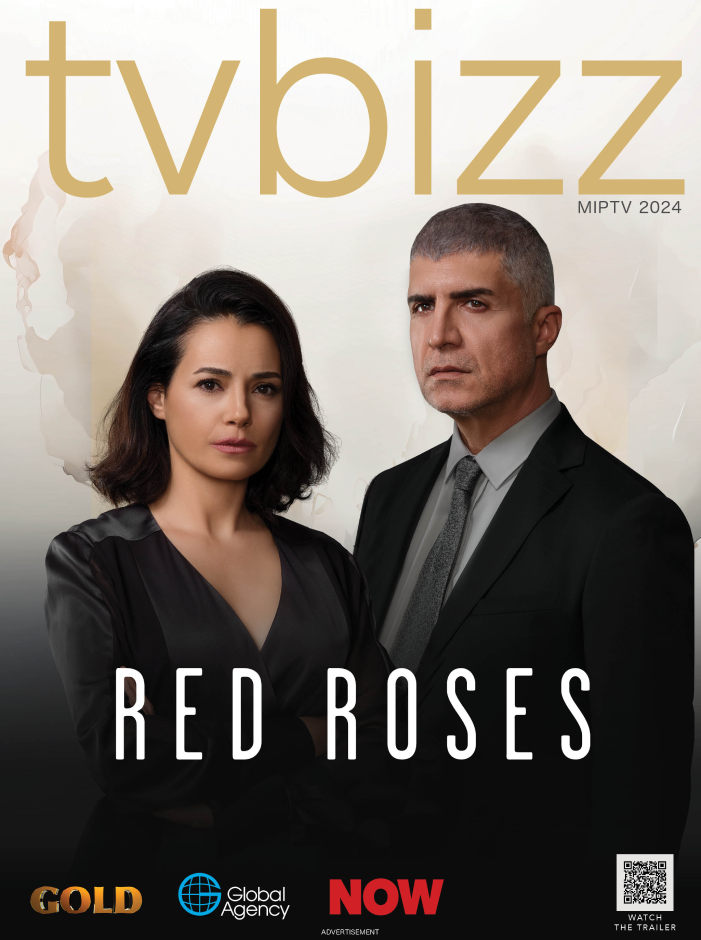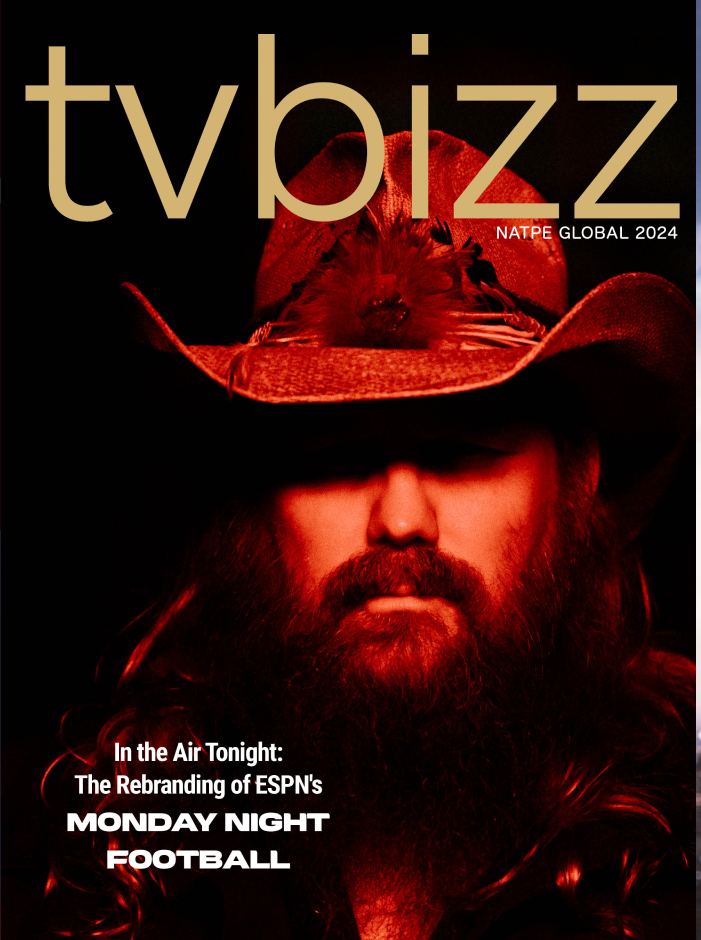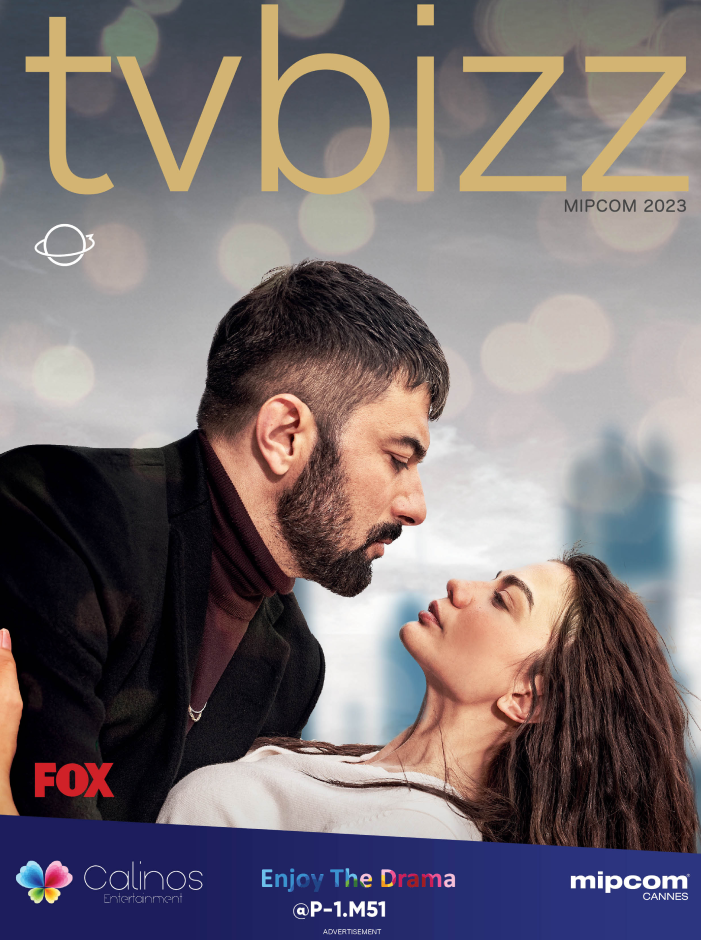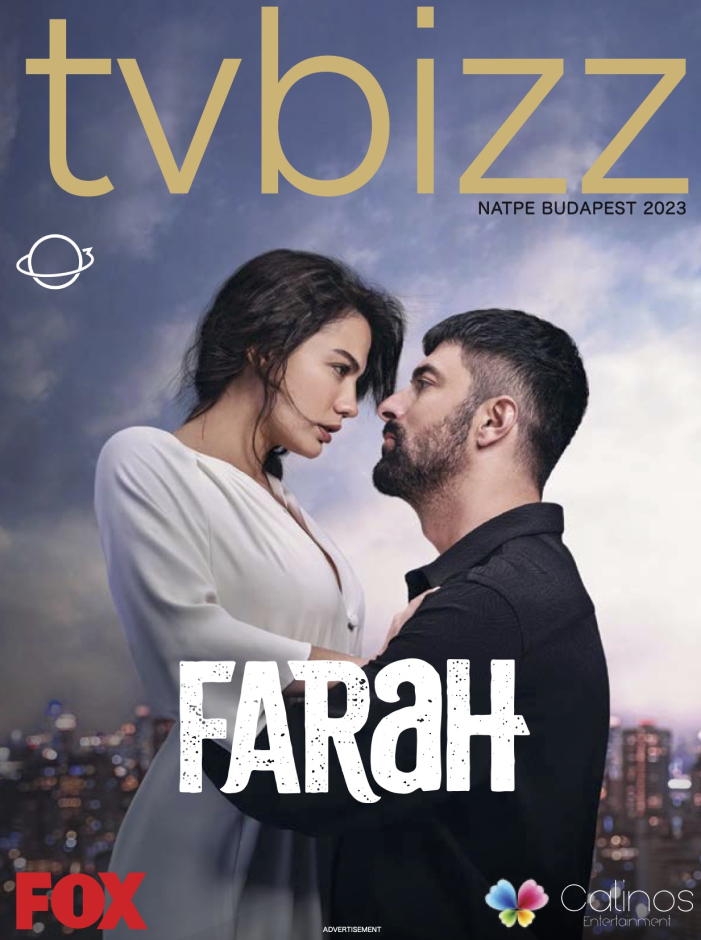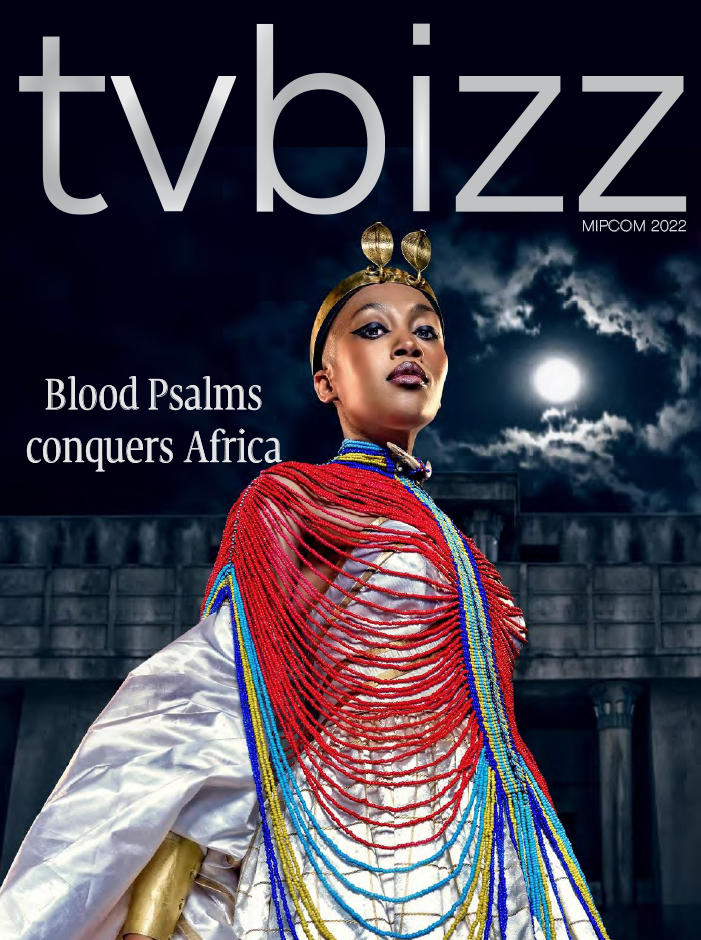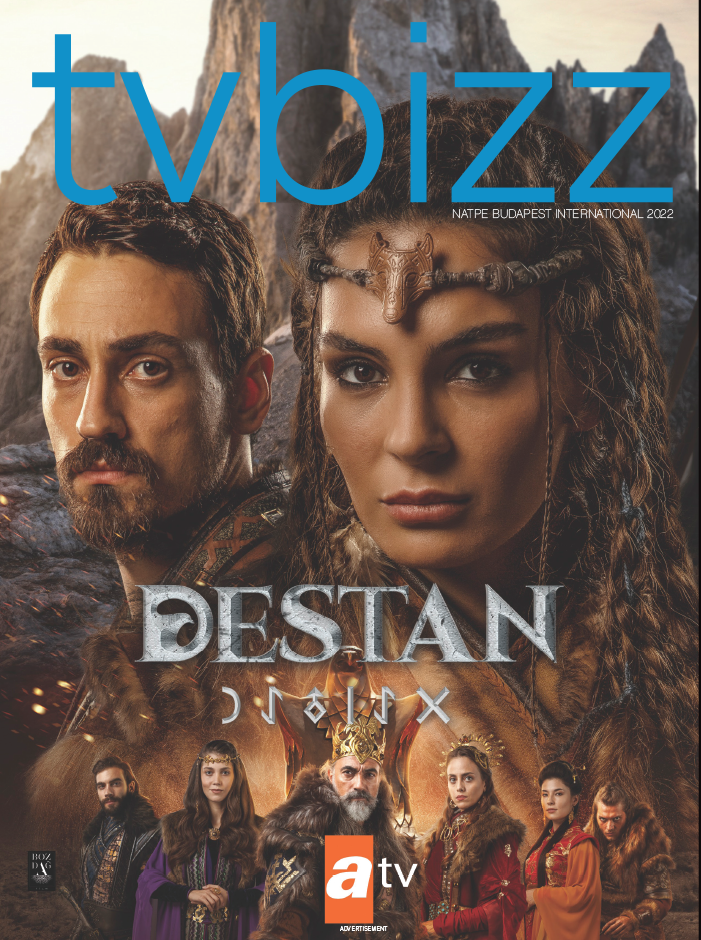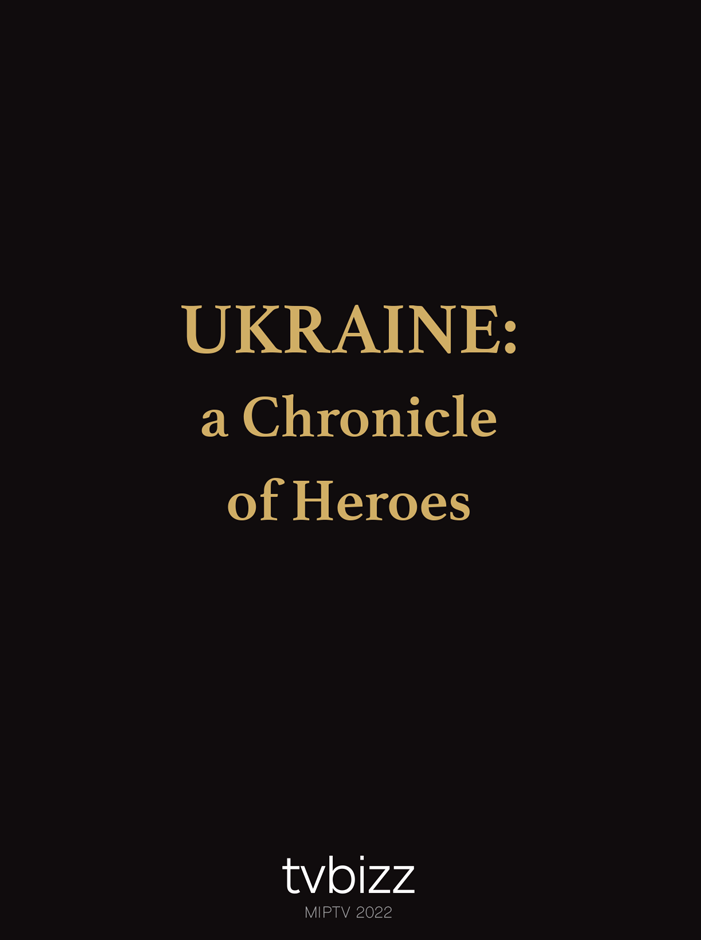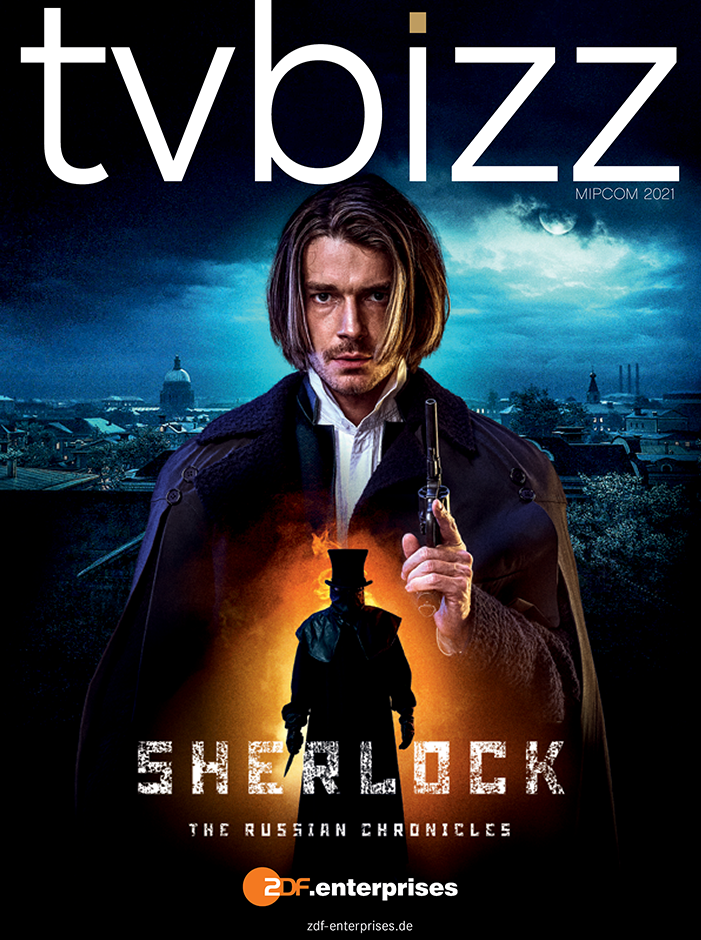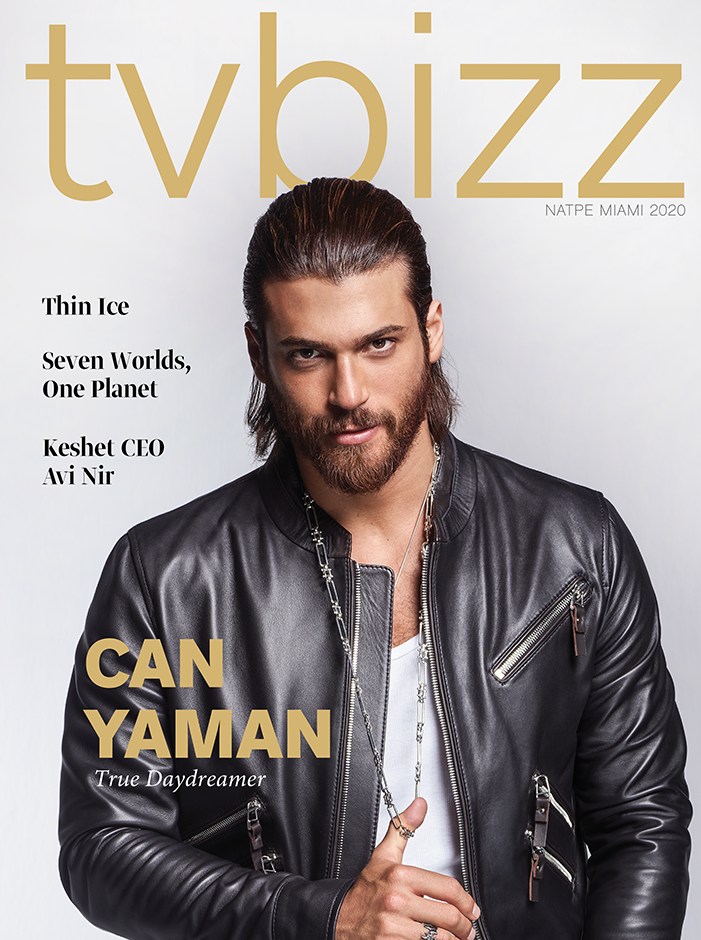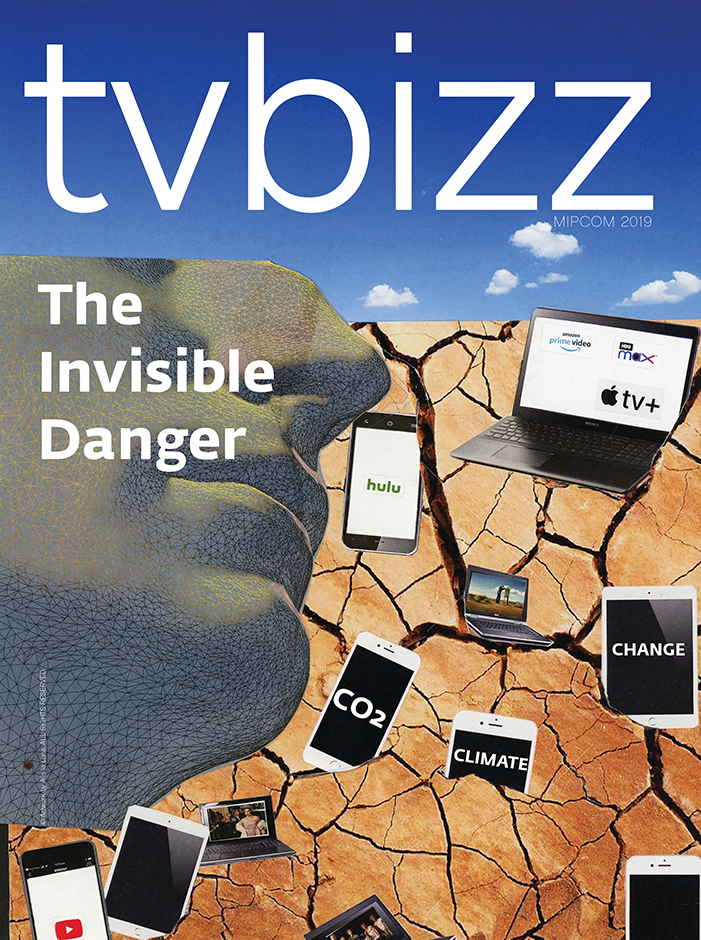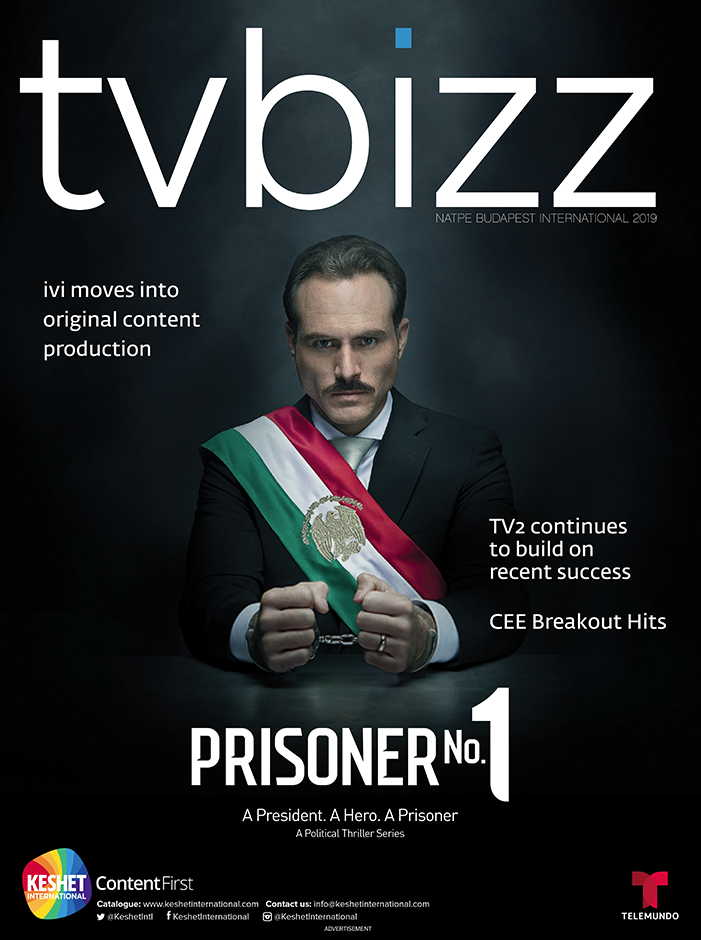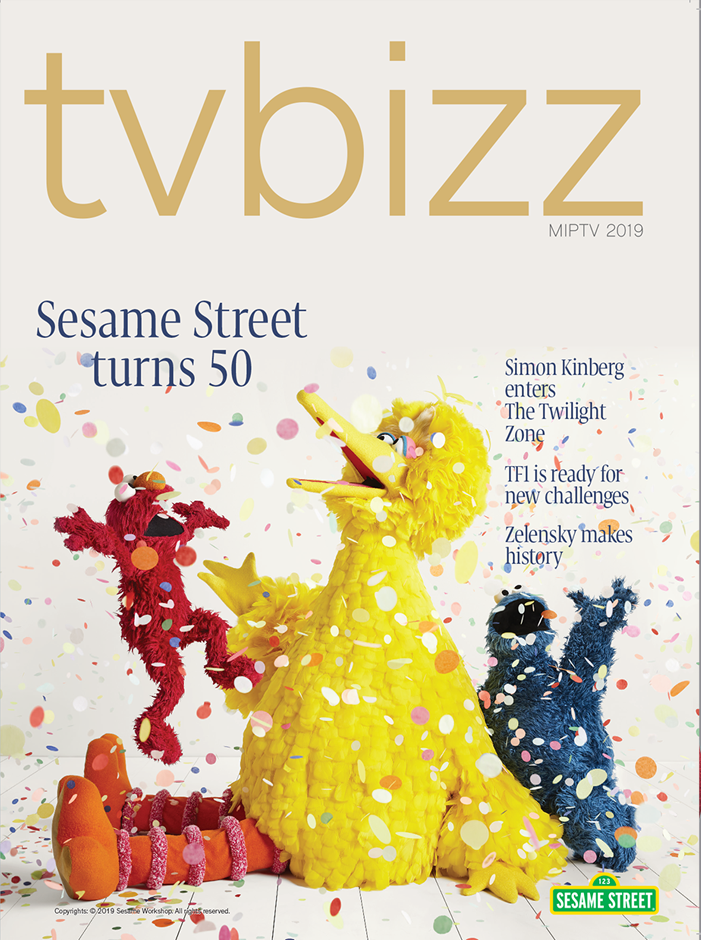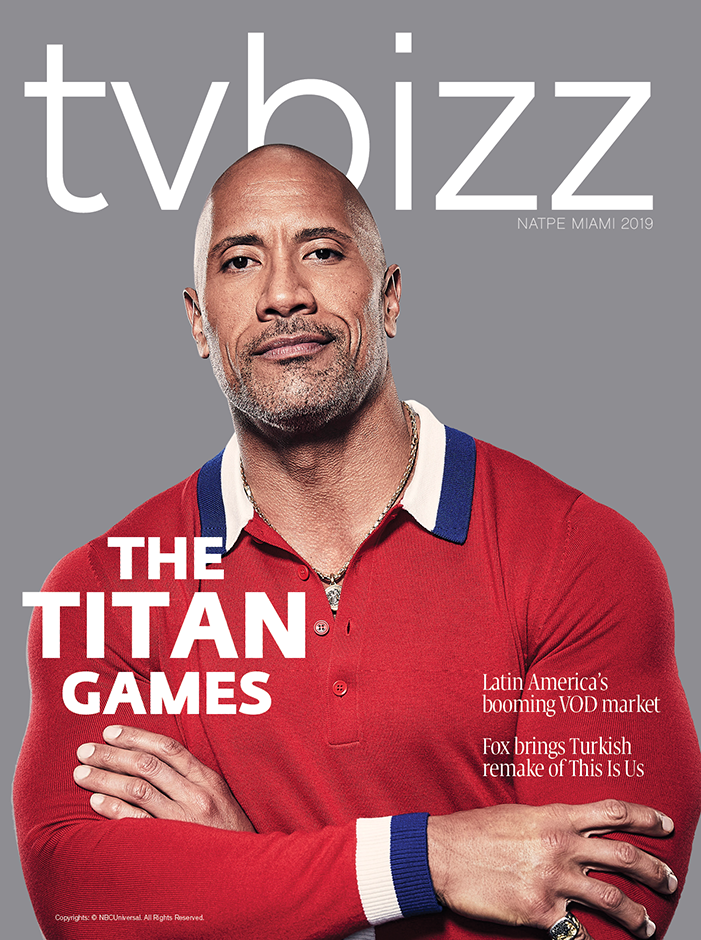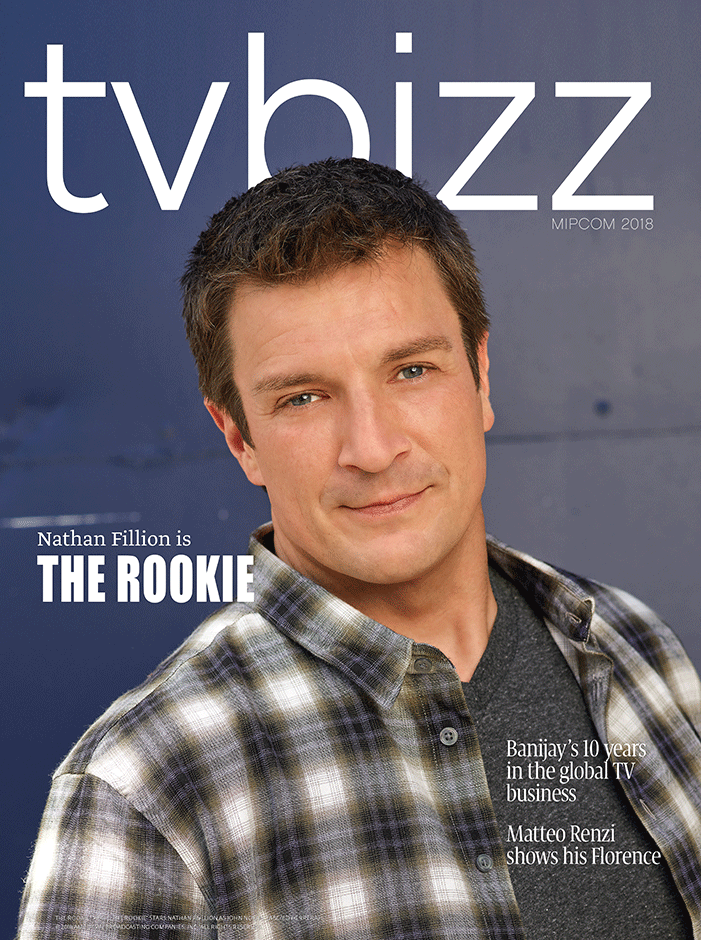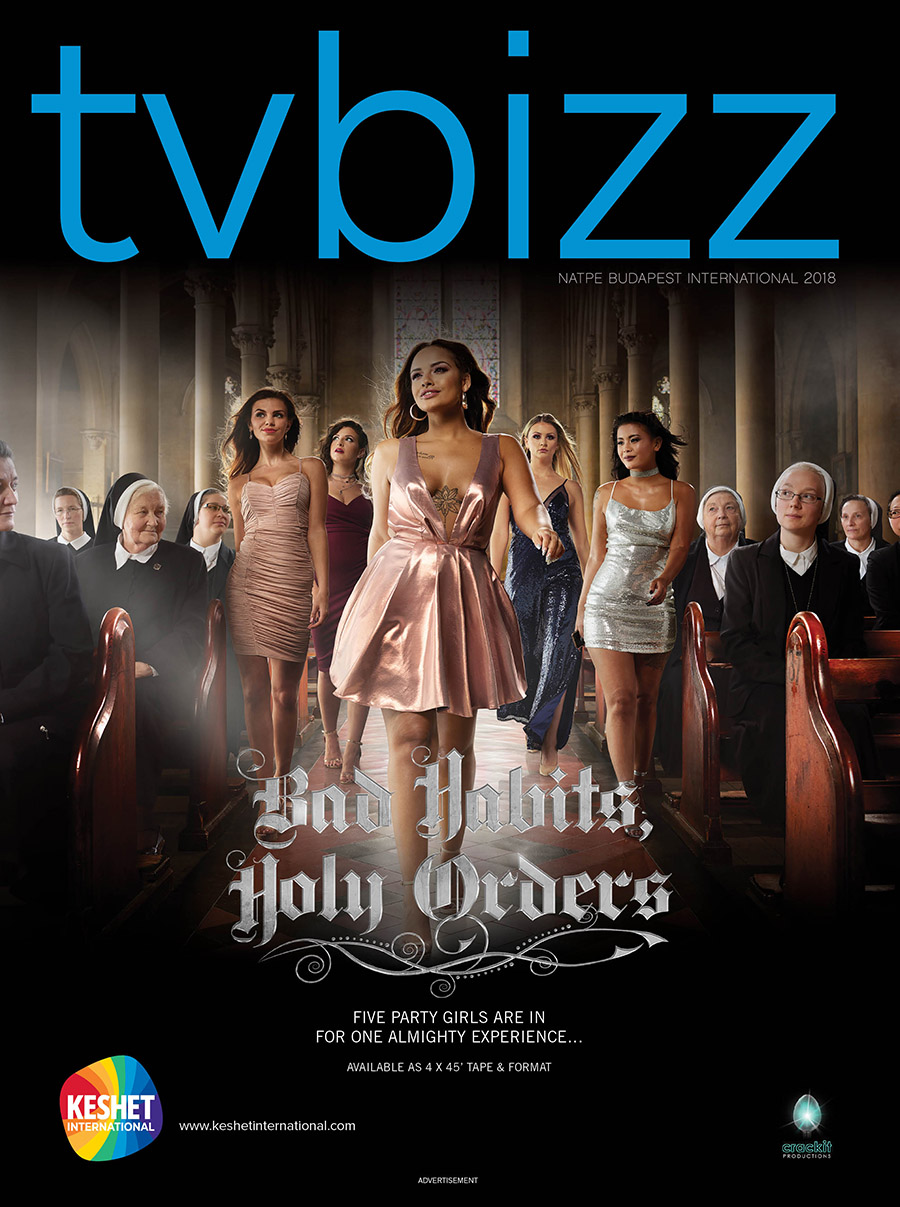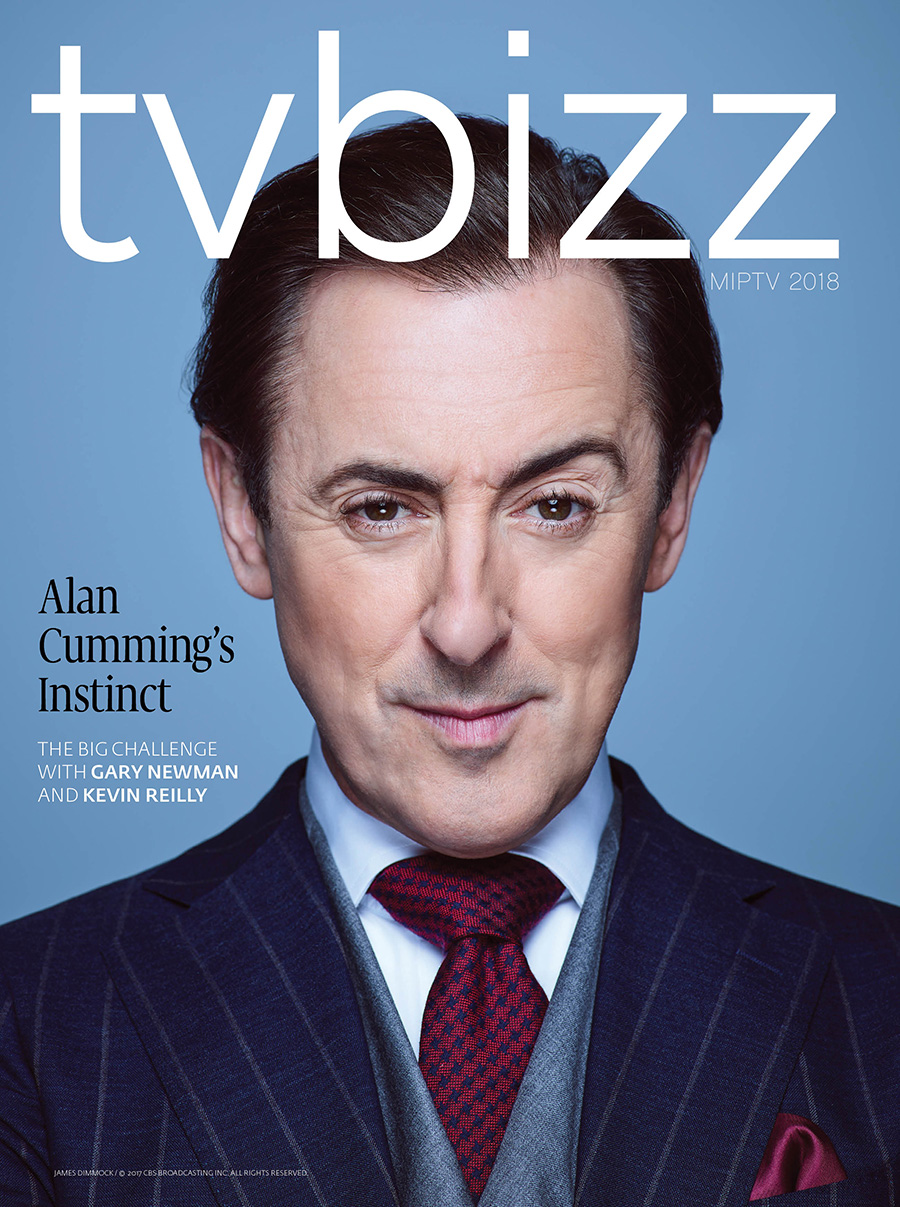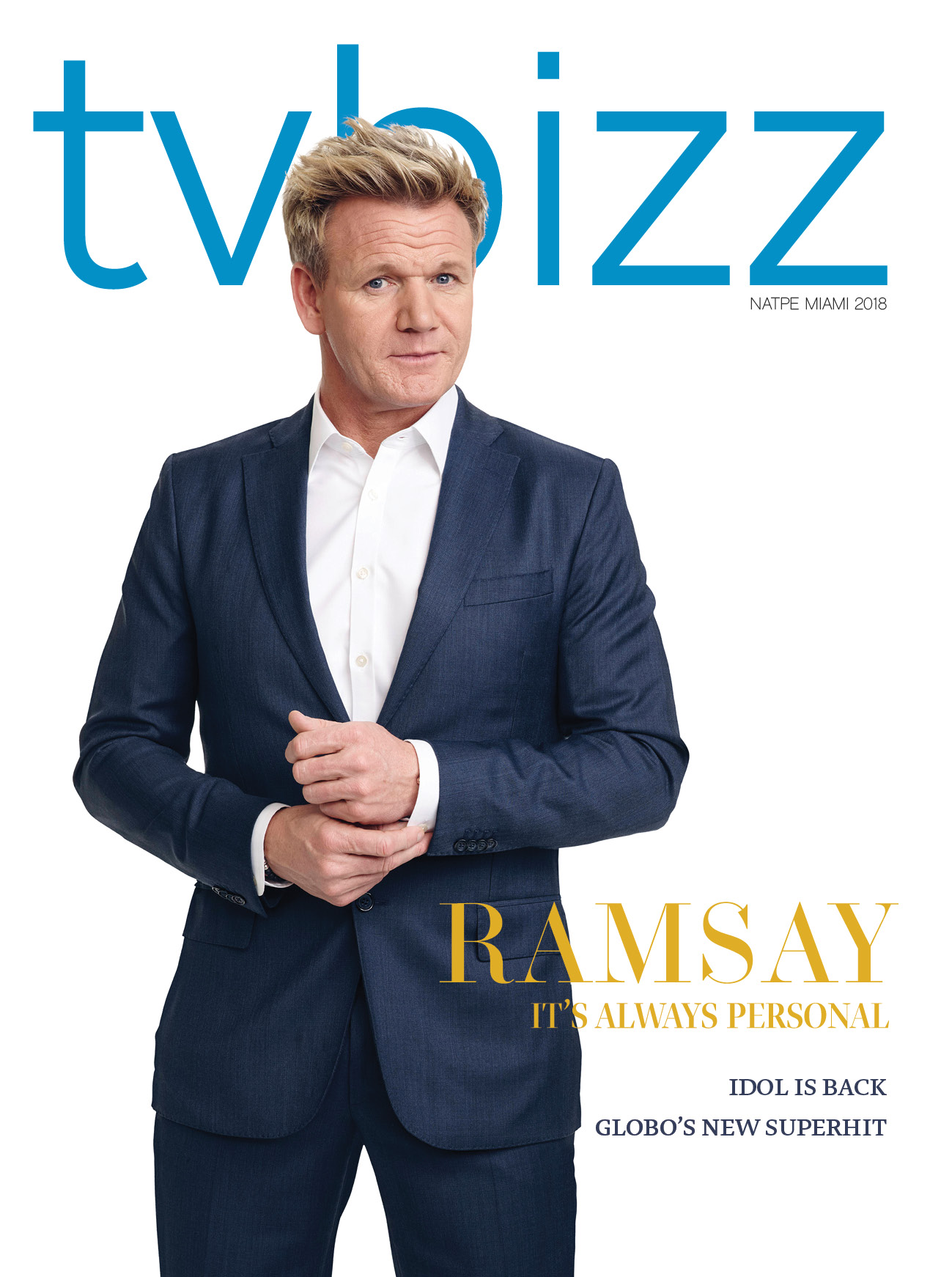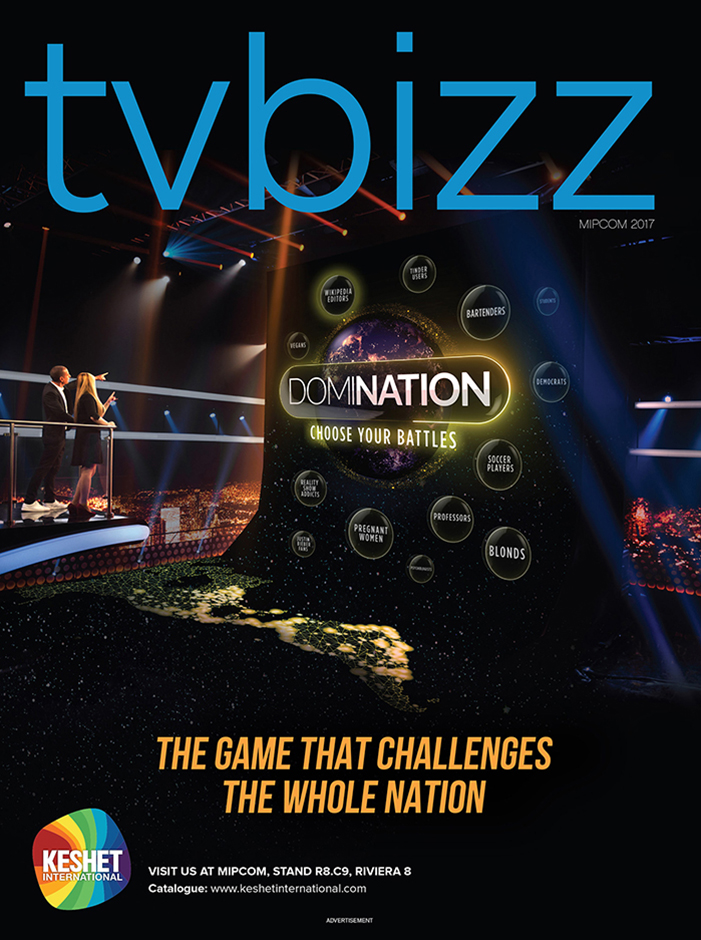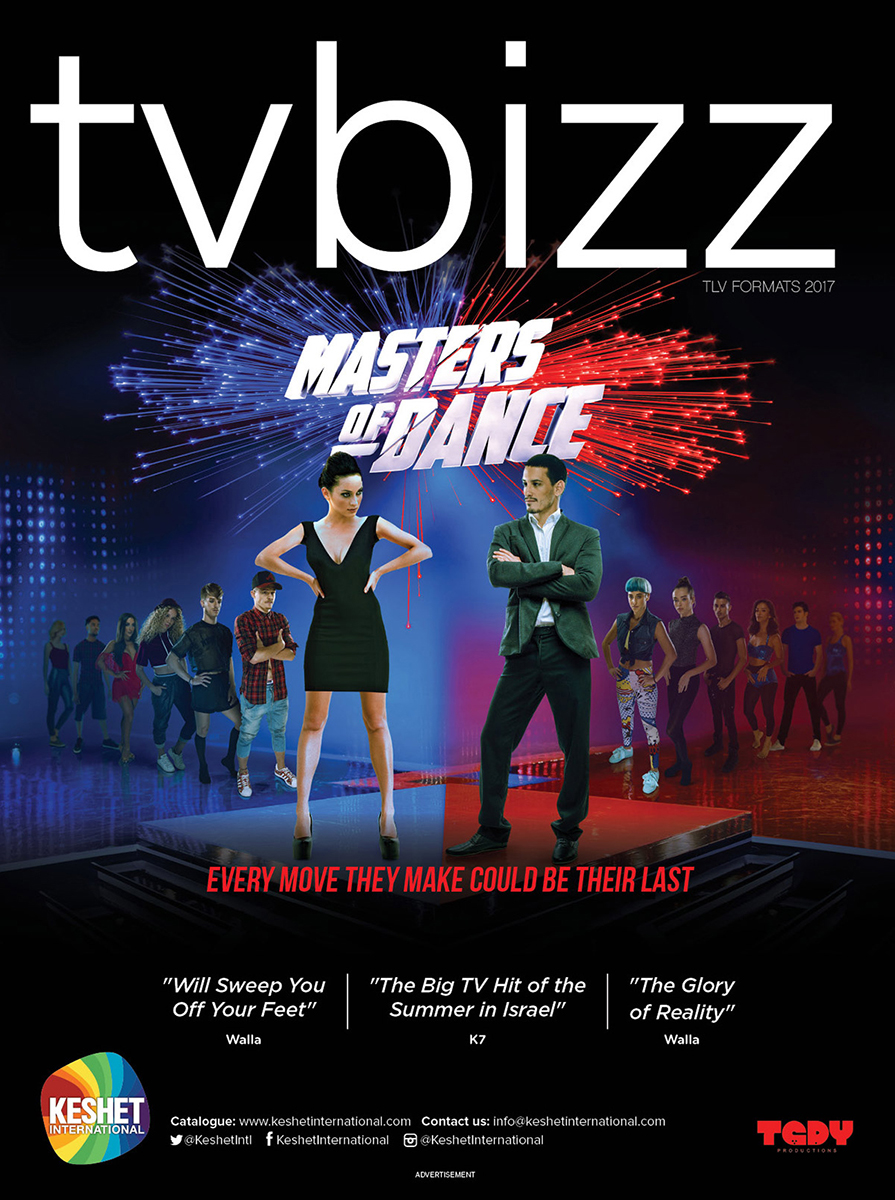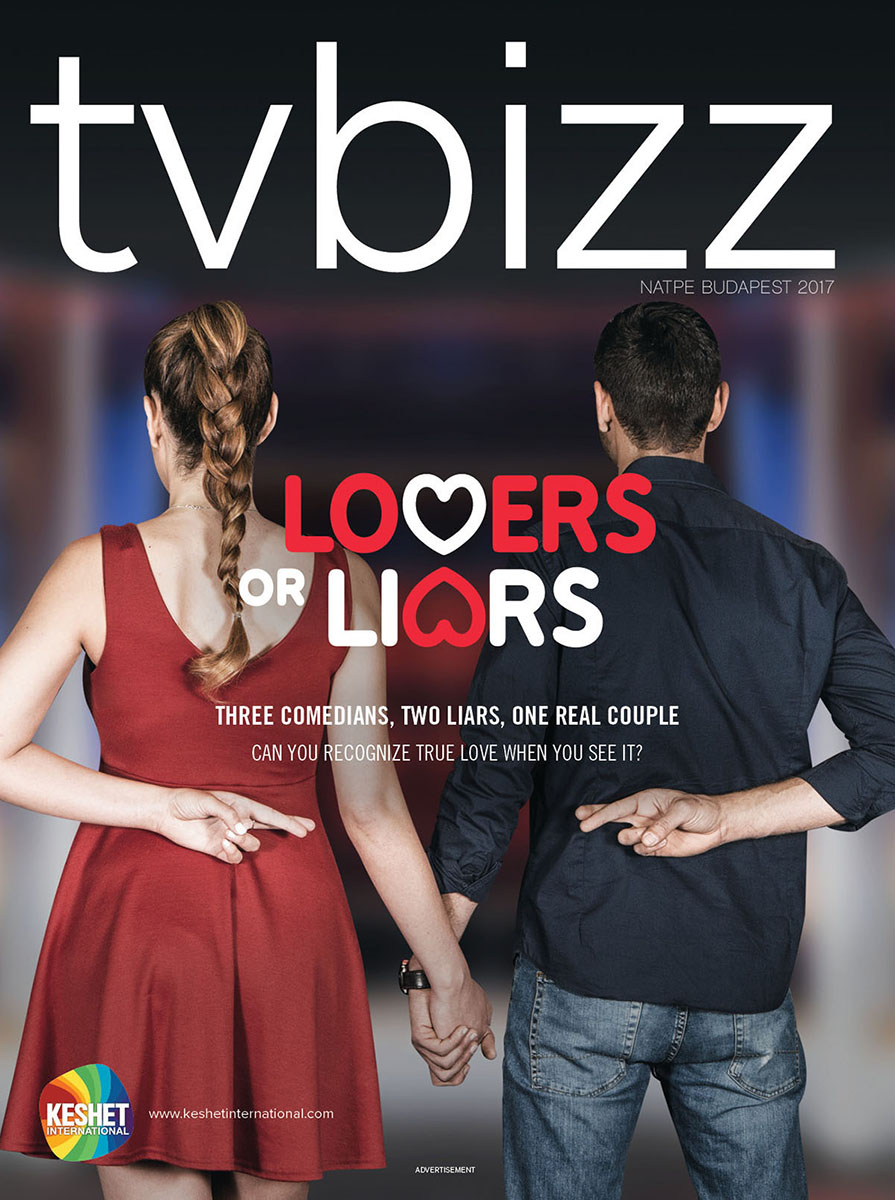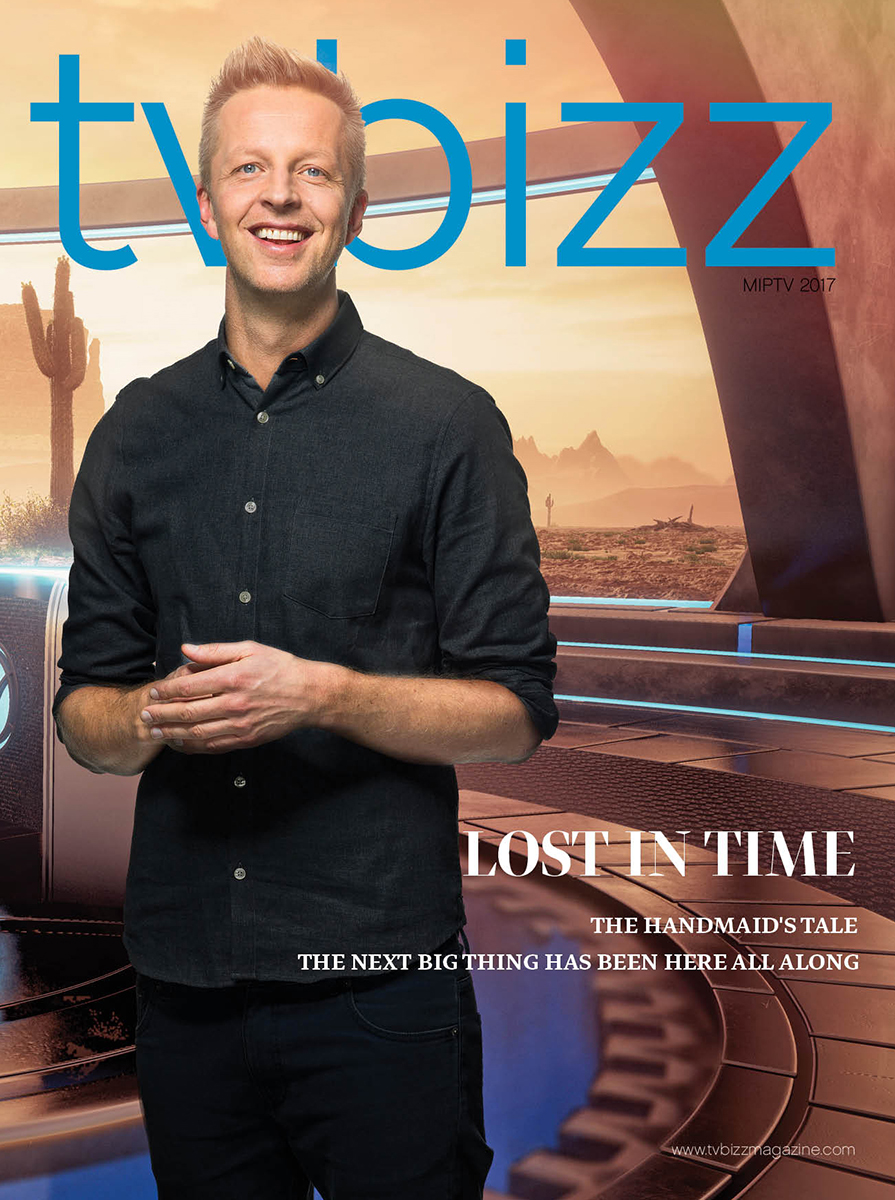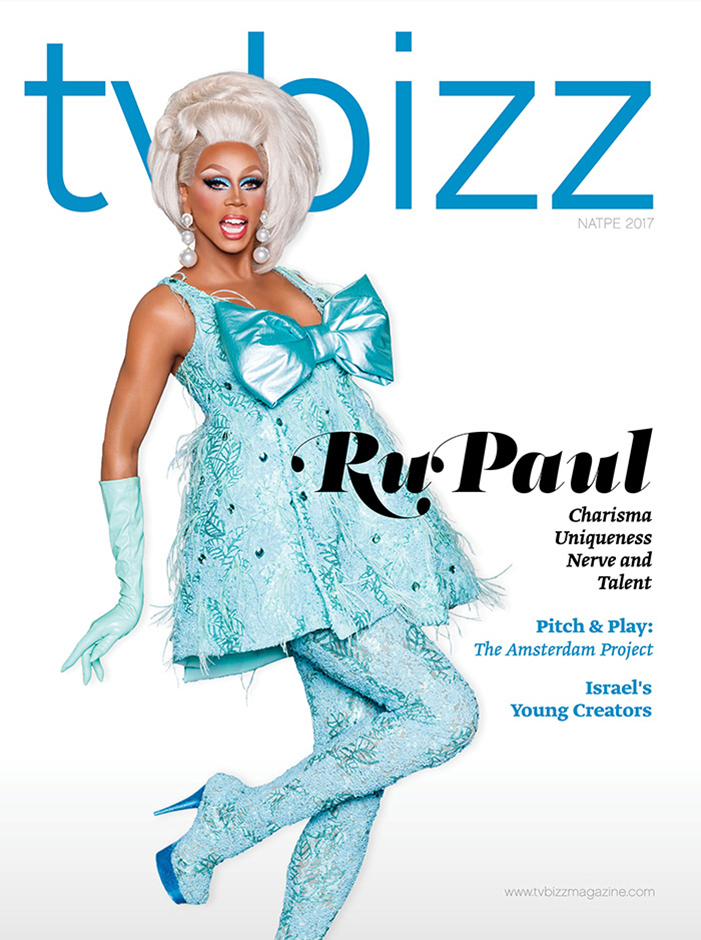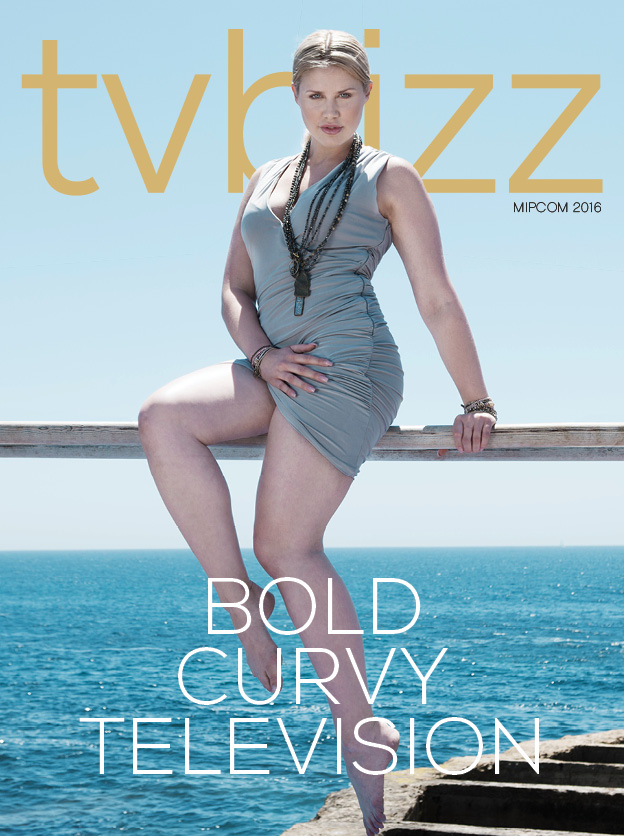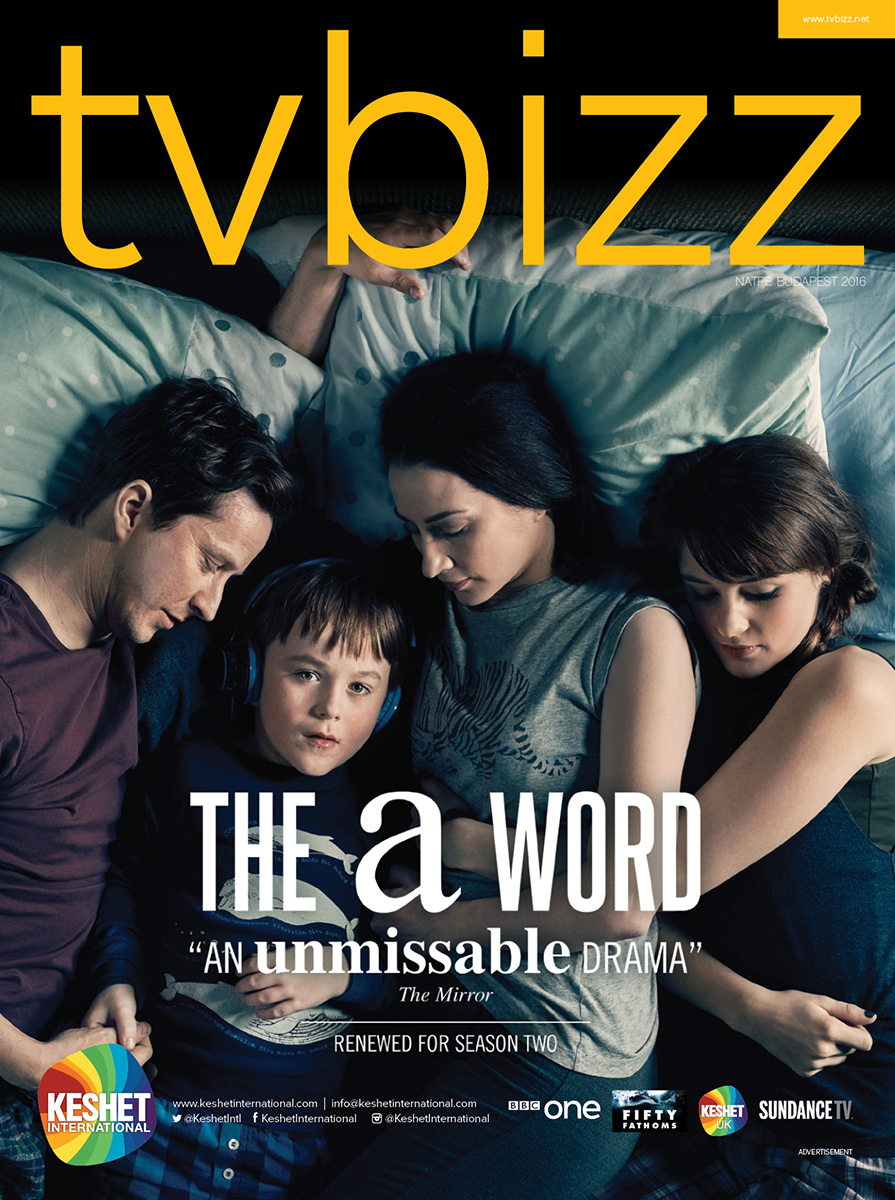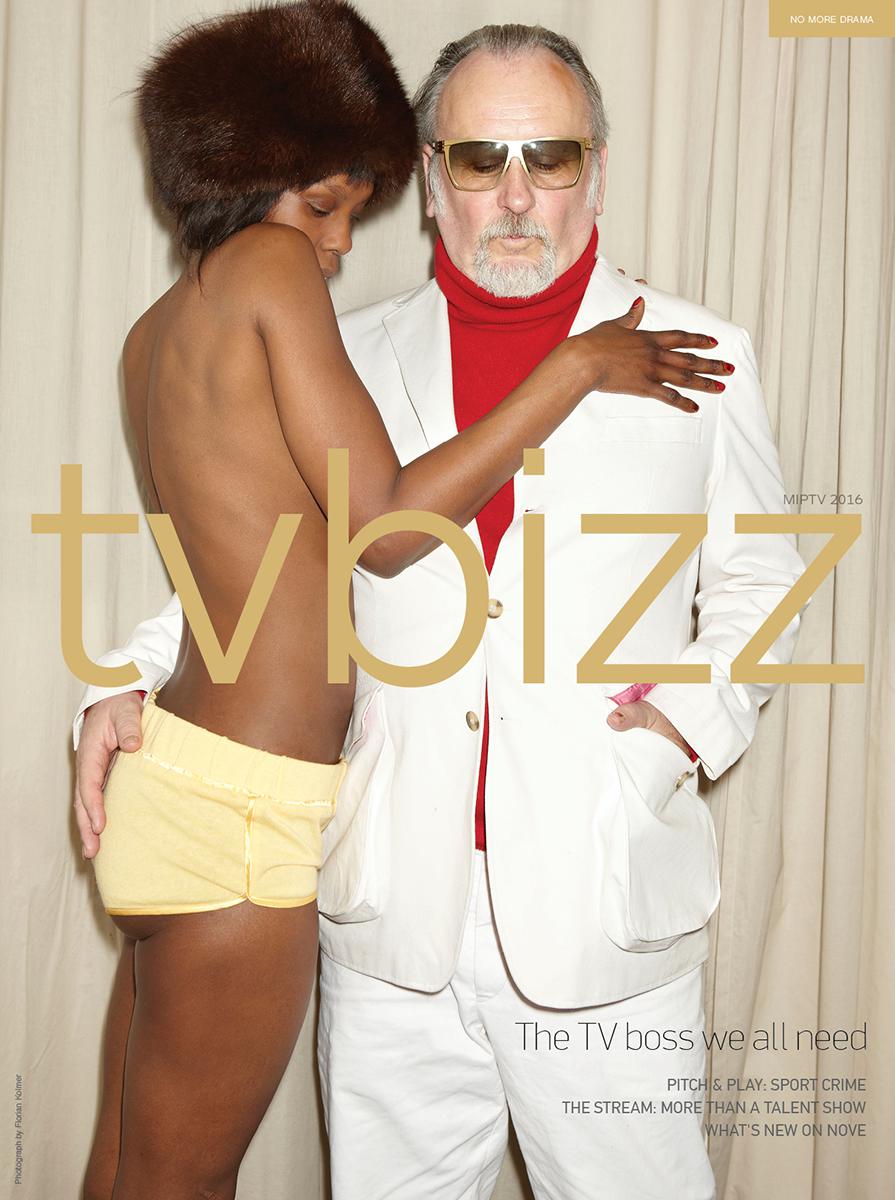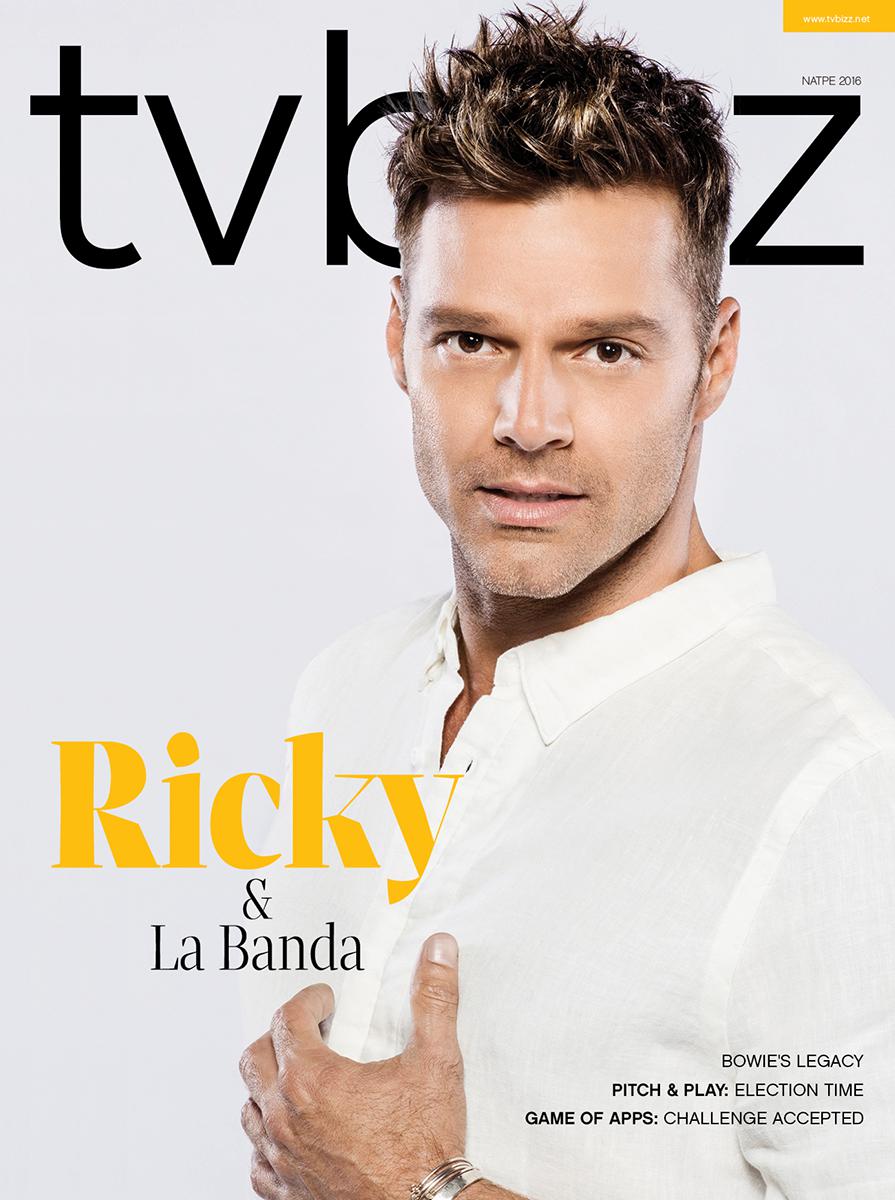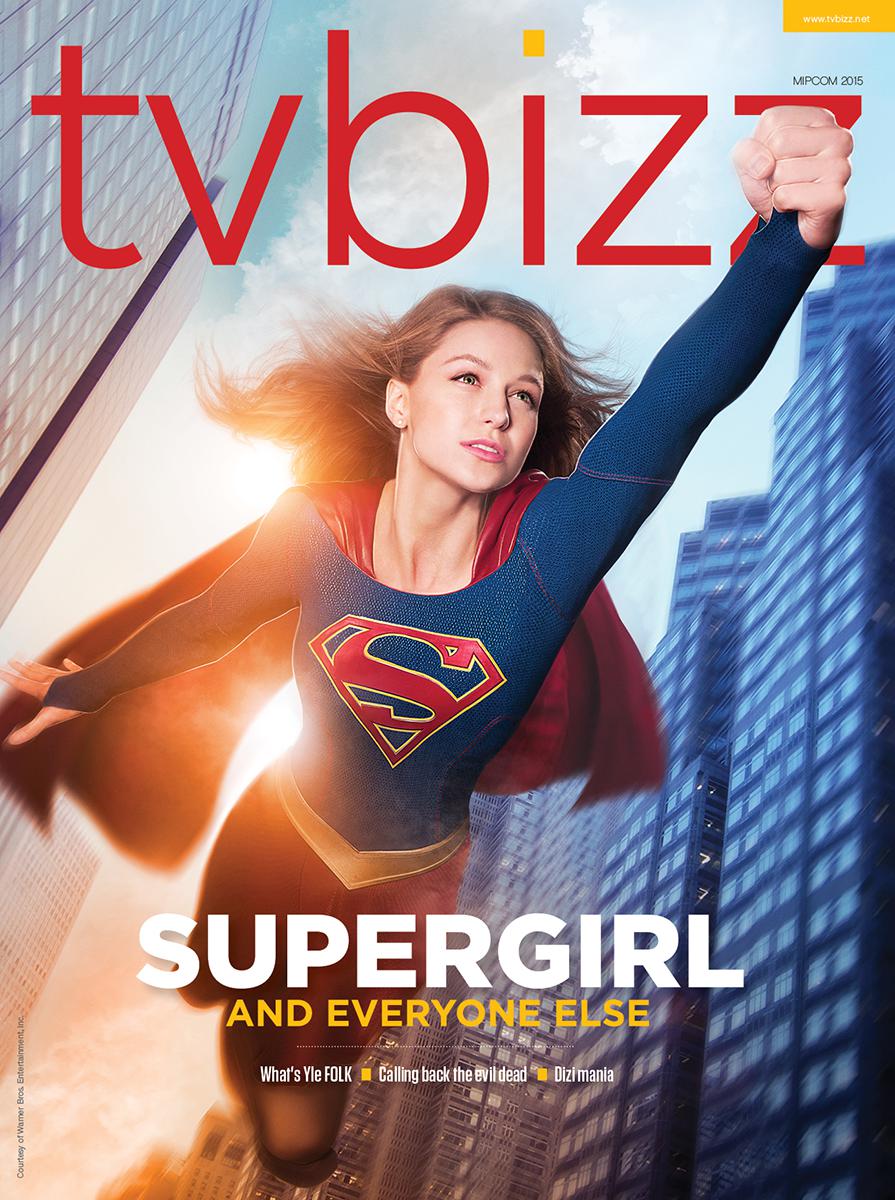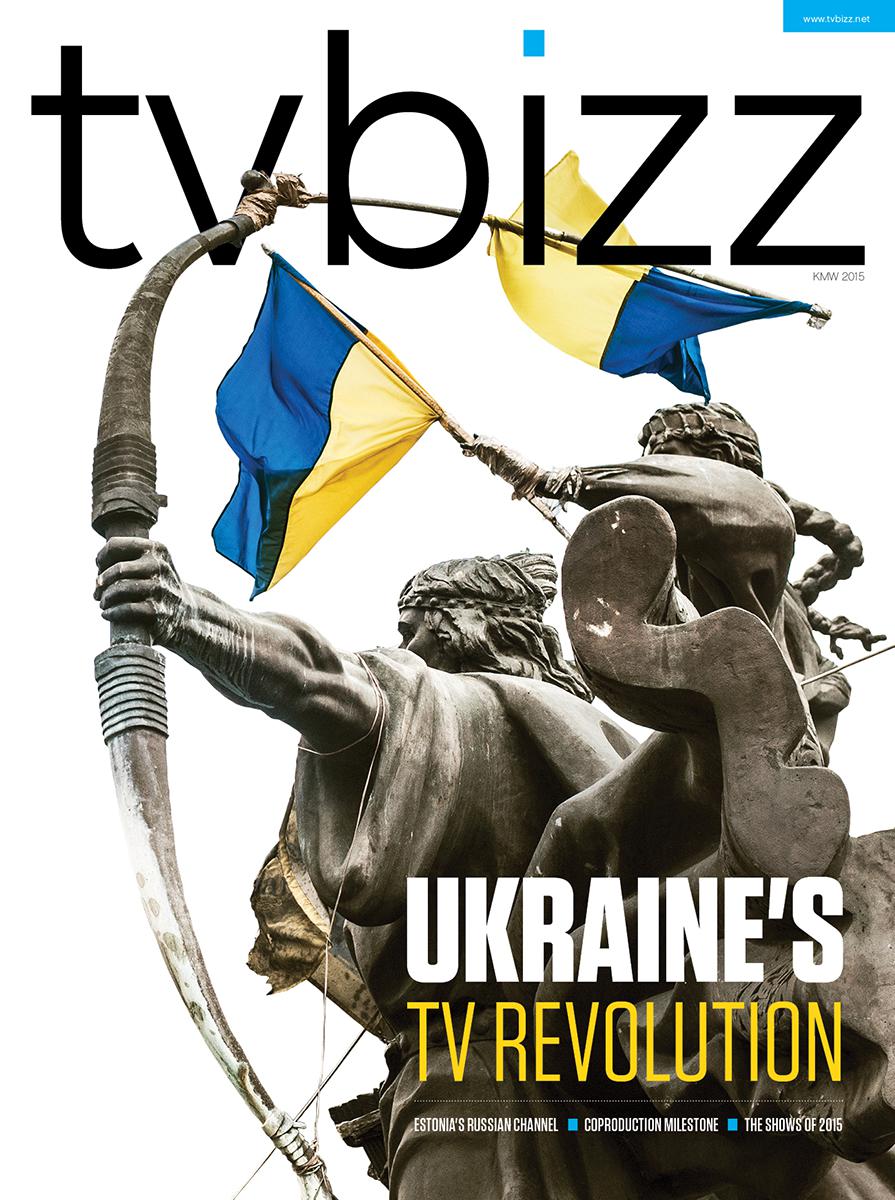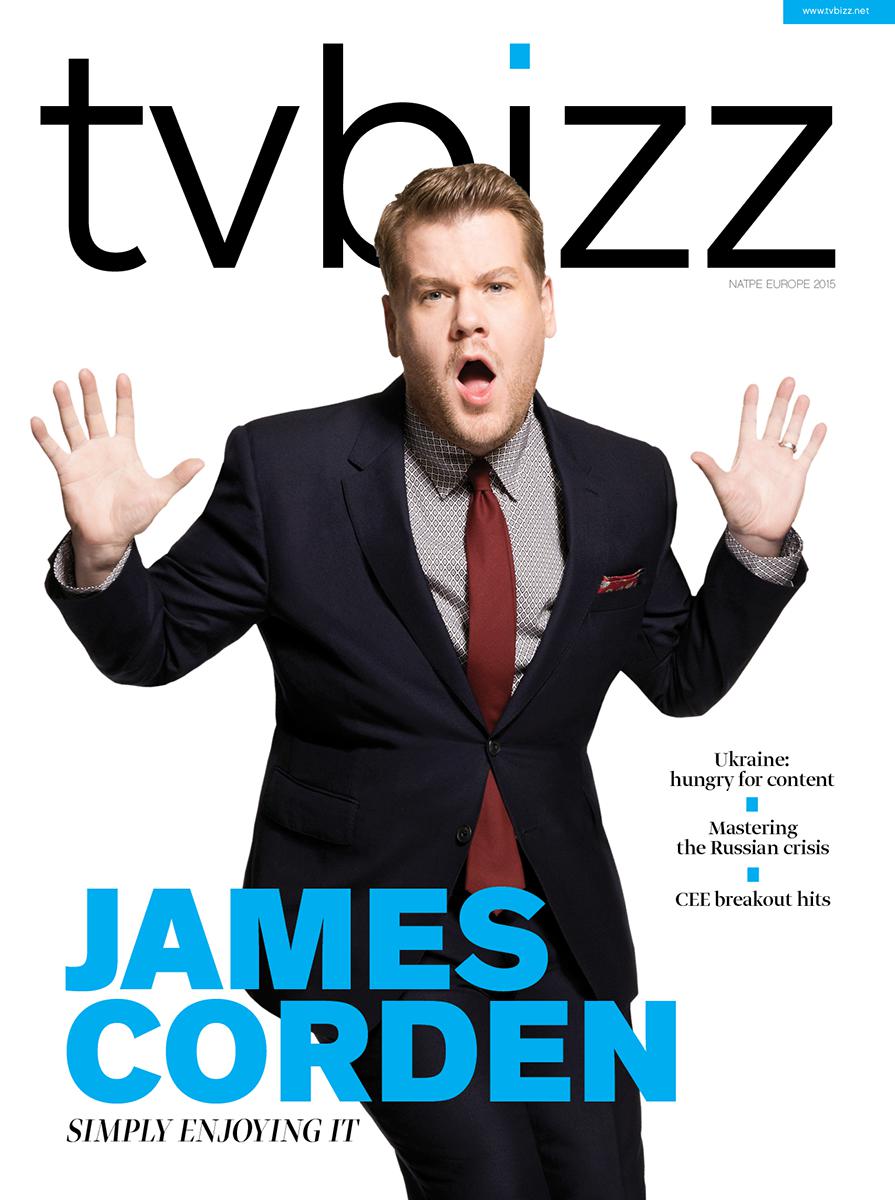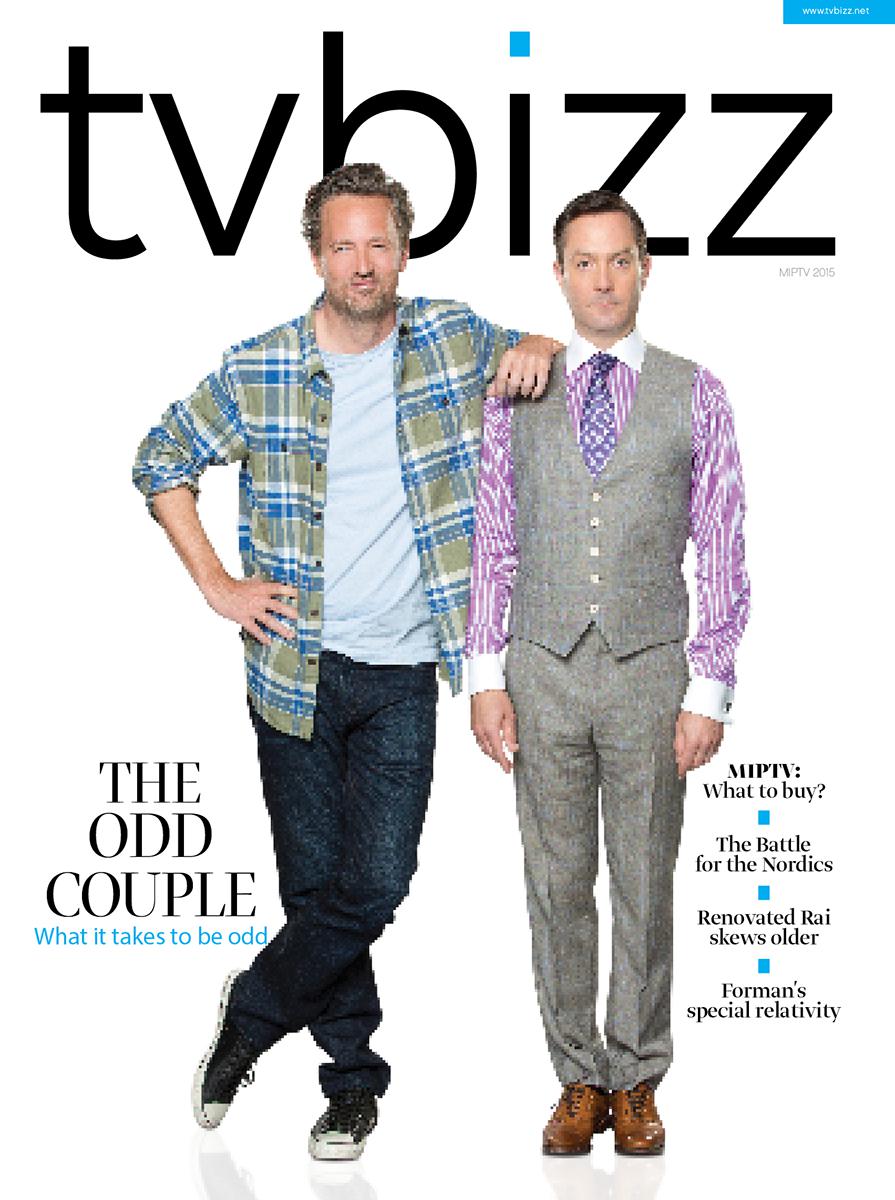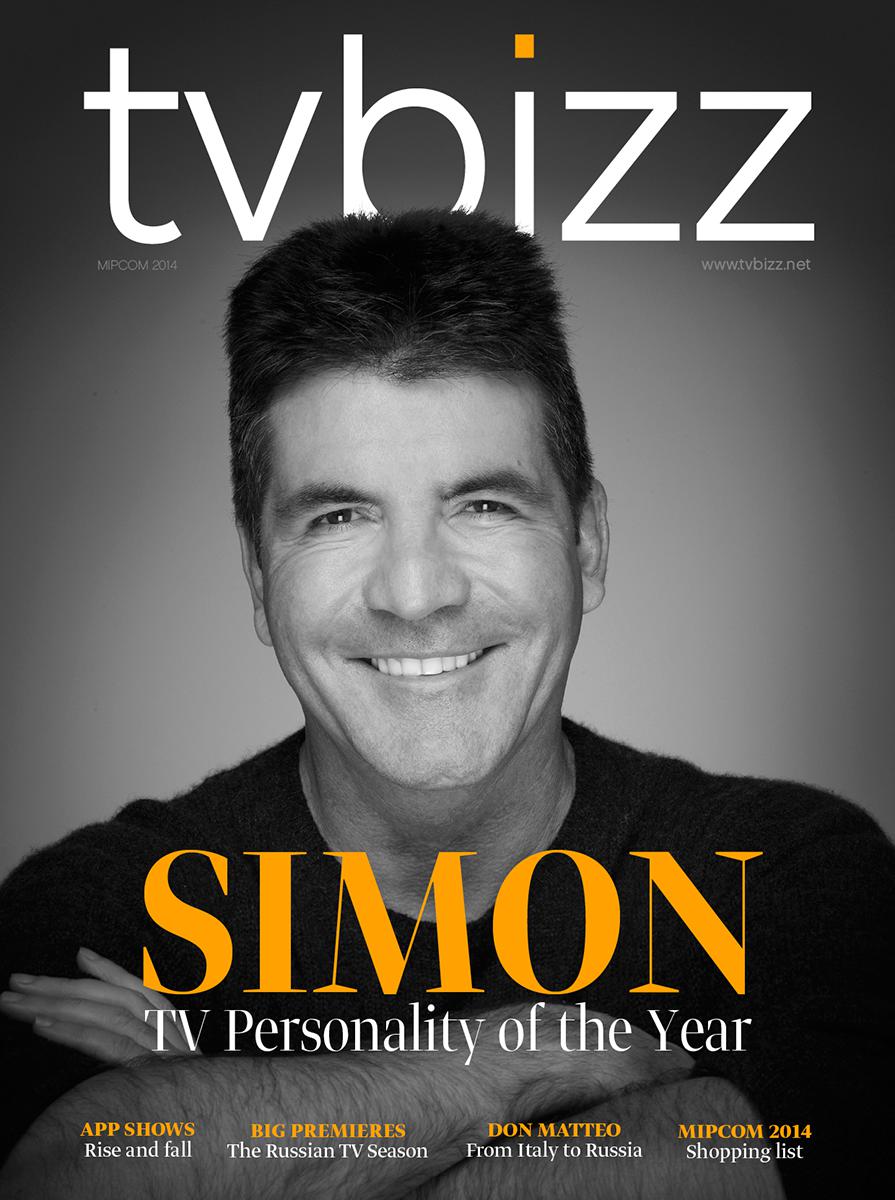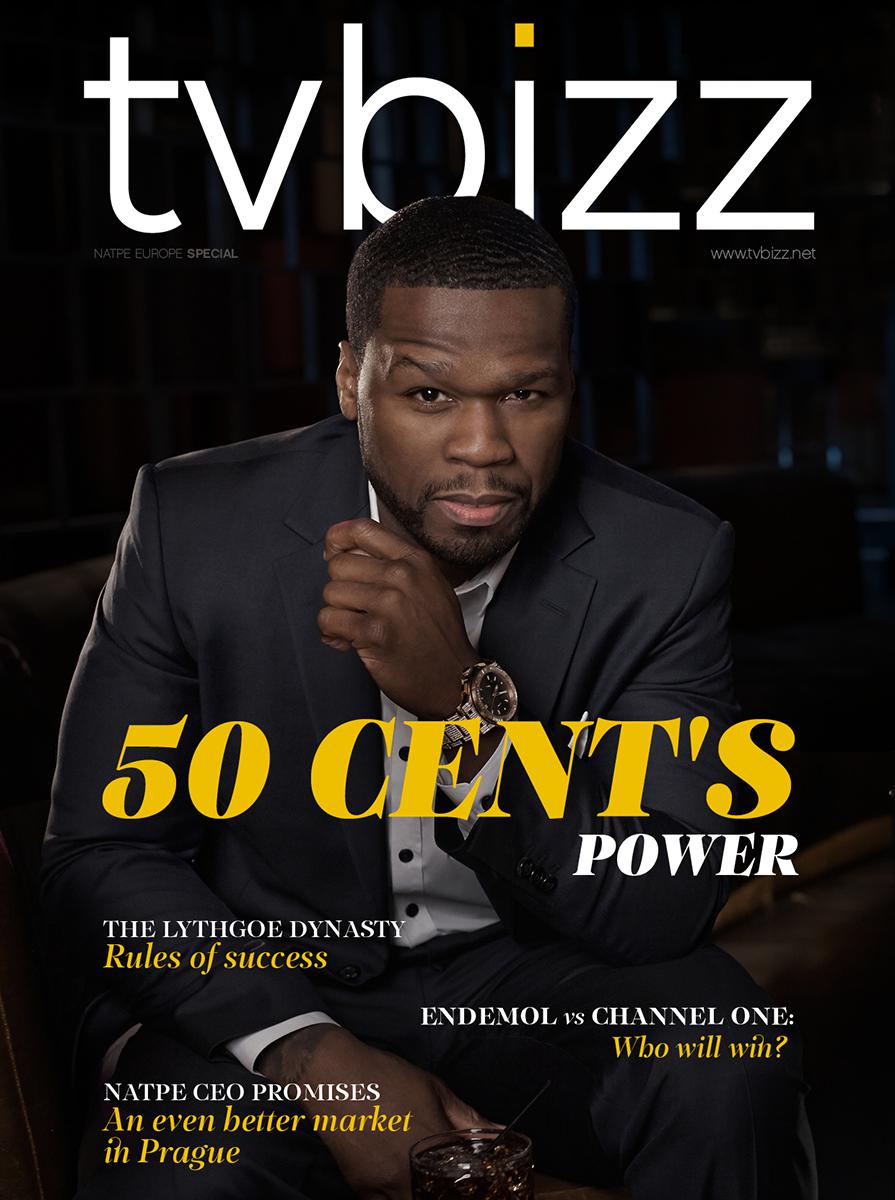The Handmaid’s Tale: A beautiful dystopian world with traits of our own reality
The Handmaid’s Tale is one of the most expected new series of 2017, set to premiere on Hulu in a few weeks. The show’s theme of a dystopian world where women are deprived of all rights and used for reproduction purposes only will certainly grab the audience as the world of today faces more government control and attempts to limit people’s rights and freedom with the promise of “more security”.
Yako Molhov spoke with creator, showrunner and executive producer, Bruce Miller, and one of the stars of the show, Yvonne Strahovski, about the main themes of The Handmaid’s Tale, the challenges of adapting the famous book and getting under the skin of its complex characters.
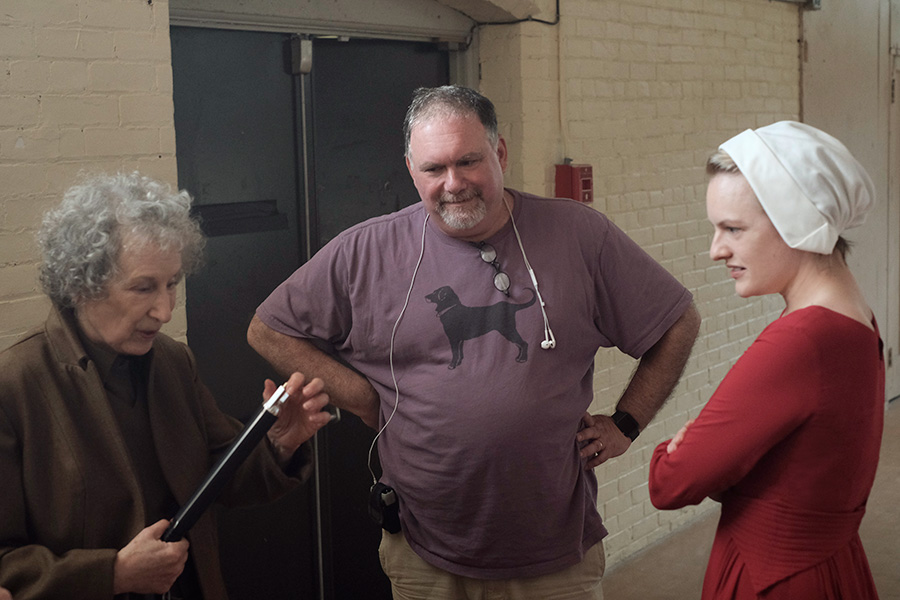
Bruce Miller on set
Bruce, could we draw some parallels between the dystopian world of Gilead and what is happening in our world today?
It’s interesting because it’s a question that I’ve thought about a lot, every time I read it - a lot of times over the last 25 years. And now people say “It’s so timely and so relevant to what’s going on right now,” but I think that’s always been the case, it’s the strength of the book that there’s something to pull out and connect with your real life at any point in history. The world of Gilead is a very religious world, a totalitarian religious state. At least in America, we’re having a kind of political upheavals, but that’s not really the kind of political upheavals we’re having. Just the idea of people being in a society where the government is being powerful and cruel and the people are fighting with the government; this is the thing that people are relating to now. People feel a little powerless and are wondering if there are ways to fight back, at least that’s what connects the story, for me, to the world now. If Offred can find a way to rebel and fight back, if Offred can do it, maybe there’s something that we can do.
When did you start working on the project?
I started working on the project a year and a half ago. I wrote the pilot and then the next two episodes before we really started planning for the series. The first season is 10 episodes and I wrote the first three, so we had a pretty good handle on what we were going to do in the first season, using the book as a guide, not following it as a blueprint but using it as a guide, and then also just getting writers together.
The writing process was fascinating. Even though you have a book, you still have to choose what’s going to make a good TV show. And of course the casting in this case was very important to the project, I think more important than some other projects.
MGM has been amazing, the way the story has opened up, it included different parts of the world and be much more global, just same way politics is much more global, and things that happen in one part of the world affect other parts of the world, so we’ve been able to extend it in that way and make it much more of an international story, because if something like this happened in the US, it will surely affect the world.
 Handmaids Tale hr.jpg)
The author of the novel, Margaret Atwood, is involved in the series as a consulting producer. What has been her input during the different stages of production?
Her input has been extensive. The thing that I think she brings to the table more than anything, besides her just incredible story sense, is that she’s been through this before - the book has been adapted into a movie, it’s been adapted into an opera, into a play - it’s been adapted a lot of times, so she really has a unique understanding of that process, of what works in this story in different kinds of media, and I think that she’s been very helpful.
Elisabeth Moss is playing Offred, Joseph Fiennes is the Commander, Yvonne Strahovski is Serena Joy. Who are the other actors and did you have any difficulties in picking the cast?
I had difficulty with everybody just because it’s a beloved book and you’re trying to pick people to play characters that surely I’ve had in my head a long time. You want to go with your instincts and hire the people who you think are amazing, but also you want to be thoughtful about who you’re hiring and where they fit into your story. There’s always some practical things that you really don’t think about as a viewer, but if you’re confused about who is who, the rest of the story doesn’t matter.
Elisabeth was the first person we cast and she was exactly who we were hoping to get. She’s an astonishing actress and I’ve been a fan of hers for a long time. Joseph Fiennes is a perfect actor, whom I’ve wanted to work with for a long time, Yvonne Strahovski, who has done a lot of things, but nothing like this before, was very eager to come in and audition, which she did and was just amazing.
We also have Samira Wiley, who is playing Moira; we have Max Minghella, who’s a young British actor and the son of Anthony Minghella, the writer and director. O.T. Fagbenle is another British actor. They all have a very long history and experience with the book, a lot of them have been fans of the book for a while, so it’s nice to bring all these people together. They’ve found things in the characters that I don’t know if I would’ve ever seen, they’ve done such a great job.
In the featurette, you said that it’s not a dark show, but one about perspective and not losing hope of getting your life back. What are the other major themes in the series?
Offred is this character who is trying desperately to survive an impossible situation that is cruel and torturous and inhuman and confusing and very dangerous and very alien. And she’s trying to survive to see her child again and to get her life back. But how long can you go just trying to survive before you turn into an empty shadow of a person? You survive, but there’s no human being left inside, so I think that she’s always pulled back and forth between the idea of surviving - “Will I make it through this alive?” and the idea of living... “Are there things that I still have to do that might put my life in danger, but are the things that human beings need to do to have a life that’s worth living?”
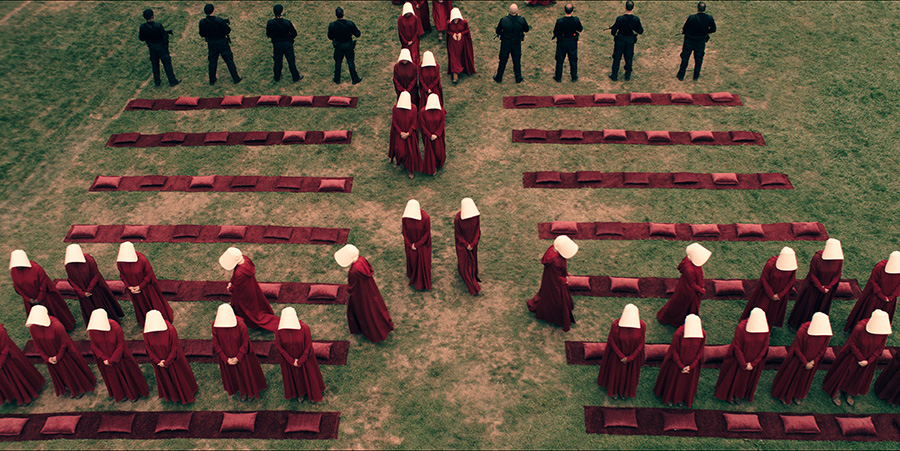
In these kinds of stories there are degrees of moral complicity with the regime, you try not to build a world of good guys and bad guys, there’s people who do good things and people who do bad things but sometimes those are the same people, so I think a lot of it is not moral relativism but the fact that people are complicated and what people do in situations like this is complicated, and nobody is a villain in their own story. Aunt Lydia is doing it for what she considers to be very kind moral reasons of duty. The characters are not stopping around, trying to make everybody else’s life miserable, nobody is doing that, they all have what they would consider to be genuine moral motives, so I think that is a big theme for us.
The other thing that I really like about the project in general is that our dystopian world of Gilead is quite beautiful. Almost every dystopian world you see is kind of dirty and smelly and dusty, but our world isn’t like that - our world looks amazing and beautiful and yet is very cruel and has lots of dark secrets and dangerous places, so I think that that’s just a good lesson - just because you make the world look nice, that doesn’t mean it is nice.
What were the biggest challenges working on the series?
The book takes place as an internal monologue, so how do you get that intimacy on television? That was the biggest challenge for me and for Elisabeth and for the directors - how do you do a show where you are feeling what the main character feels, not just understanding what she feels, but feeling it. The way you approach it is to approach Offred as a multidimensional character, not as a single character - she’s not just a mother, she’s not just a wife, she is certainly not a victim, a prisoner and definitely not just a woman, she’s certainly not just someone who’s caught completely out of her element, she’s all of those things, and when you try to think of her as Offred, that person comes alive. The intimacy of the show is always a challenge but in this case I think the payoff was much bigger as well. Her story is so interesting and compelling and scary but also inspiring, it’s worth the trouble to focus the whole show on making sure you feel what Offred feels.
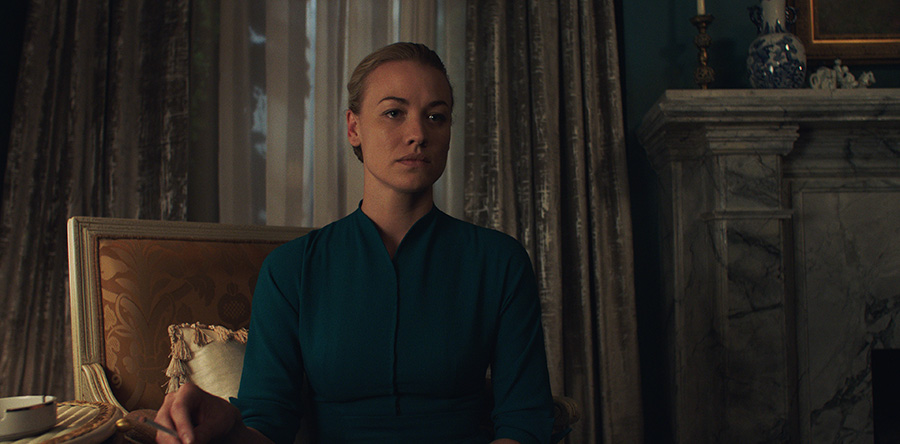
Yvonne, you play the role of Serena Joy, wife of Commander Waterford and an influential figure in the Gilead ruling regime. What is your character like?
On paper, Serena Joy is a hard, unapproachable woman. She seems without sympathy and very stern. I wanted to find out what made her tick. One of the biggest things I discovered when playing her was that she, alongside most people in oppressive Gilead, are seeking connection. Although Serena Joy is ‘at the top of the food chain’ when it comes to the hierarchy in this totalitarian society, she too is subject to the effects this has on one’s soul and psyche. This makes her vulnerable, despite how much she tries to hide it behind her stern mask. She is manipulative. She is often without empathy. She is surviving.
What was the biggest challenge for you playing the role of the wife of the leader of a world where women are treated as property of the State?
The biggest challenge was trying to figure out how Serena Joy, being a woman, was part of the architecture of this society. It also made me question the identity of self, and what that actually breaks down to. Serena Joy, pre Gilead, was a spokeswoman. An author. A woman connected to the English language through her work. An intellectual, intelligent woman who would have connected to her husband through her work. They would have talked about it. Bounced ideas back and forth. They would have also connected sexually as a couple. Been free to enjoy sex.
In Gilead however, women are not allowed to read. Or deal with books, the news or any type of work at all. This has been left for the men. Couples are also not allowed to have sex or even be sexual unless it is for procreation. So where did that leave Serena who has been deemed barren? What do you become when you are stripped of a major part of your identity, being your work, your writing, and stripped of a major way you might connect with your husband - through discussing work and ideas. And then on top of that stripped of physically connecting with your husband? How do you deal with the fact that you were part of bringing this upon yourself? And that you don’t really have a way out? This is why I fell in love with this show and this character. There is so much going on between the lines.
The Handmaid’s Tale is one of the most anticipated new shows of 2017. What will turn it into an audience favorite?
It is powerfully reflective of the current fears people have in America coming off of an incredibly divisive election. Women’s rights are being threatened and many issues surrounding race and religion have had more light shed on them. It seems to me that people are deeply concerned for the future and what the country stands for. It feels unstable. And the worry that it can get a lot worse for some people is very real. The Handmaid’s Tale shows us a version of society that has tipped into a place that a lot of us dread. And it does it in a way where it doesn’t seem unrealistic as to how it got there. ▪
It’s interesting because it’s a question that I’ve thought about a lot, every time I read it - a lot of times over the last 25 years. And now people say “It’s so timely and so relevant to what’s going on right now,” but I think that’s always been the case, it’s the strength of the book that there’s something to pull out and connect with your real life at any point in history. The world of Gilead is a very religious world, a totalitarian religious state. At least in America, we’re having a kind of political upheavals, but that’s not really the kind of political upheavals we’re having. Just the idea of people being in a society where the government is being powerful and cruel and the people are fighting with the government; this is the thing that people are relating to now. People feel a little powerless and are wondering if there are ways to fight back, at least that’s what connects the story, for me, to the world now. If Offred can find a way to rebel and fight back, if Offred can do it, maybe there’s something that we can do.
When did you start working on the project?
I started working on the project a year and a half ago. I wrote the pilot and then the next two episodes before we really started planning for the series. The first season is 10 episodes and I wrote the first three, so we had a pretty good handle on what we were going to do in the first season, using the book as a guide, not following it as a blueprint but using it as a guide, and then also just getting writers together.
The writing process was fascinating. Even though you have a book, you still have to choose what’s going to make a good TV show. And of course the casting in this case was very important to the project, I think more important than some other projects.
MGM has been amazing, the way the story has opened up, it included different parts of the world and be much more global, just same way politics is much more global, and things that happen in one part of the world affect other parts of the world, so we’ve been able to extend it in that way and make it much more of an international story, because if something like this happened in the US, it will surely affect the world.
 Handmaids Tale hr.jpg)
Elisabeth Moss as Offred
The author of the novel, Margaret Atwood, is involved in the series as a consulting producer. What has been her input during the different stages of production?
Her input has been extensive. The thing that I think she brings to the table more than anything, besides her just incredible story sense, is that she’s been through this before - the book has been adapted into a movie, it’s been adapted into an opera, into a play - it’s been adapted a lot of times, so she really has a unique understanding of that process, of what works in this story in different kinds of media, and I think that she’s been very helpful.
Elisabeth Moss is playing Offred, Joseph Fiennes is the Commander, Yvonne Strahovski is Serena Joy. Who are the other actors and did you have any difficulties in picking the cast?
I had difficulty with everybody just because it’s a beloved book and you’re trying to pick people to play characters that surely I’ve had in my head a long time. You want to go with your instincts and hire the people who you think are amazing, but also you want to be thoughtful about who you’re hiring and where they fit into your story. There’s always some practical things that you really don’t think about as a viewer, but if you’re confused about who is who, the rest of the story doesn’t matter.
Elisabeth was the first person we cast and she was exactly who we were hoping to get. She’s an astonishing actress and I’ve been a fan of hers for a long time. Joseph Fiennes is a perfect actor, whom I’ve wanted to work with for a long time, Yvonne Strahovski, who has done a lot of things, but nothing like this before, was very eager to come in and audition, which she did and was just amazing.
We also have Samira Wiley, who is playing Moira; we have Max Minghella, who’s a young British actor and the son of Anthony Minghella, the writer and director. O.T. Fagbenle is another British actor. They all have a very long history and experience with the book, a lot of them have been fans of the book for a while, so it’s nice to bring all these people together. They’ve found things in the characters that I don’t know if I would’ve ever seen, they’ve done such a great job.
In the featurette, you said that it’s not a dark show, but one about perspective and not losing hope of getting your life back. What are the other major themes in the series?
Offred is this character who is trying desperately to survive an impossible situation that is cruel and torturous and inhuman and confusing and very dangerous and very alien. And she’s trying to survive to see her child again and to get her life back. But how long can you go just trying to survive before you turn into an empty shadow of a person? You survive, but there’s no human being left inside, so I think that she’s always pulled back and forth between the idea of surviving - “Will I make it through this alive?” and the idea of living... “Are there things that I still have to do that might put my life in danger, but are the things that human beings need to do to have a life that’s worth living?”

In these kinds of stories there are degrees of moral complicity with the regime, you try not to build a world of good guys and bad guys, there’s people who do good things and people who do bad things but sometimes those are the same people, so I think a lot of it is not moral relativism but the fact that people are complicated and what people do in situations like this is complicated, and nobody is a villain in their own story. Aunt Lydia is doing it for what she considers to be very kind moral reasons of duty. The characters are not stopping around, trying to make everybody else’s life miserable, nobody is doing that, they all have what they would consider to be genuine moral motives, so I think that is a big theme for us.
The other thing that I really like about the project in general is that our dystopian world of Gilead is quite beautiful. Almost every dystopian world you see is kind of dirty and smelly and dusty, but our world isn’t like that - our world looks amazing and beautiful and yet is very cruel and has lots of dark secrets and dangerous places, so I think that that’s just a good lesson - just because you make the world look nice, that doesn’t mean it is nice.
What were the biggest challenges working on the series?
The book takes place as an internal monologue, so how do you get that intimacy on television? That was the biggest challenge for me and for Elisabeth and for the directors - how do you do a show where you are feeling what the main character feels, not just understanding what she feels, but feeling it. The way you approach it is to approach Offred as a multidimensional character, not as a single character - she’s not just a mother, she’s not just a wife, she is certainly not a victim, a prisoner and definitely not just a woman, she’s certainly not just someone who’s caught completely out of her element, she’s all of those things, and when you try to think of her as Offred, that person comes alive. The intimacy of the show is always a challenge but in this case I think the payoff was much bigger as well. Her story is so interesting and compelling and scary but also inspiring, it’s worth the trouble to focus the whole show on making sure you feel what Offred feels.

Yvonne Strahovski
Yvonne, you play the role of Serena Joy, wife of Commander Waterford and an influential figure in the Gilead ruling regime. What is your character like?
On paper, Serena Joy is a hard, unapproachable woman. She seems without sympathy and very stern. I wanted to find out what made her tick. One of the biggest things I discovered when playing her was that she, alongside most people in oppressive Gilead, are seeking connection. Although Serena Joy is ‘at the top of the food chain’ when it comes to the hierarchy in this totalitarian society, she too is subject to the effects this has on one’s soul and psyche. This makes her vulnerable, despite how much she tries to hide it behind her stern mask. She is manipulative. She is often without empathy. She is surviving.
What was the biggest challenge for you playing the role of the wife of the leader of a world where women are treated as property of the State?
The biggest challenge was trying to figure out how Serena Joy, being a woman, was part of the architecture of this society. It also made me question the identity of self, and what that actually breaks down to. Serena Joy, pre Gilead, was a spokeswoman. An author. A woman connected to the English language through her work. An intellectual, intelligent woman who would have connected to her husband through her work. They would have talked about it. Bounced ideas back and forth. They would have also connected sexually as a couple. Been free to enjoy sex.
In Gilead however, women are not allowed to read. Or deal with books, the news or any type of work at all. This has been left for the men. Couples are also not allowed to have sex or even be sexual unless it is for procreation. So where did that leave Serena who has been deemed barren? What do you become when you are stripped of a major part of your identity, being your work, your writing, and stripped of a major way you might connect with your husband - through discussing work and ideas. And then on top of that stripped of physically connecting with your husband? How do you deal with the fact that you were part of bringing this upon yourself? And that you don’t really have a way out? This is why I fell in love with this show and this character. There is so much going on between the lines.
The Handmaid’s Tale is one of the most anticipated new shows of 2017. What will turn it into an audience favorite?
It is powerfully reflective of the current fears people have in America coming off of an incredibly divisive election. Women’s rights are being threatened and many issues surrounding race and religion have had more light shed on them. It seems to me that people are deeply concerned for the future and what the country stands for. It feels unstable. And the worry that it can get a lot worse for some people is very real. The Handmaid’s Tale shows us a version of society that has tipped into a place that a lot of us dread. And it does it in a way where it doesn’t seem unrealistic as to how it got there. ▪



